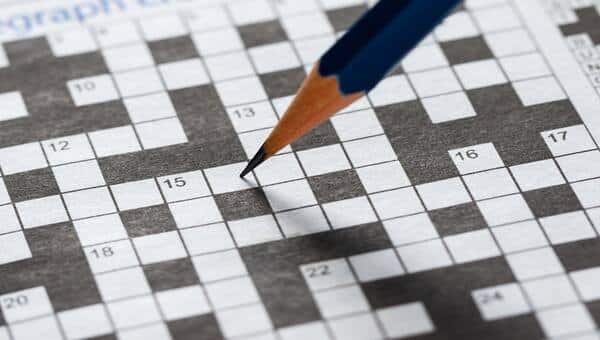How to Boost Your Brain Health with Puzzle Games

In the digital age, our minds are often occupied by a constant stream of information and distractions. Amidst this, it’s essential to prioritize brain health to maintain cognitive abilities, memory, and mental agility. One enjoyable and effective way to do so is by engaging in puzzle games. Whether you’re a crossword enthusiast, a Sudoku solver, or a fan of brain-teasing riddles, puzzle games offer a stimulating way to challenge your brain, enhance cognitive function, and boost overall mental well-being. In this comprehensive guide, we’ll explore the fascinating world of puzzle games and how they can be harnessed to supercharge your brain health.
The Brain-Puzzle Connection
The human brain is a remarkable organ with the capacity for continuous learning and adaptation. It thrives on stimulation, novelty, and cognitive challenges. Engaging in puzzle games taps into this natural inclination and provides an avenue to exercise various cognitive skills.
Benefits of Puzzle Games for Brain Health
- Enhanced Cognitive Function:
Puzzle games require you to think critically, analyze patterns, and solve problems. Regular engagement in these activities can help sharpen cognitive skills like memory, attention, and problem-solving.
- Stress Reduction:
Immersing yourself in puzzle-solving can serve as a form of mindfulness, helping you shift your focus away from stressors and promoting relaxation.
- Neuroplasticity:
Neuroplasticity is the brain’s ability to reorganize itself by forming new neural connections. Puzzle games stimulate this process, leading to improved brain function and adaptability.
- Memory Improvement:
Many puzzle games involve recalling information or patterns, contributing to memory enhancement and the prevention of age-related memory decline.
- Enhanced Problem-Solving Skills:
Puzzle games present challenges that require creative thinking and problem-solving strategies, encouraging you to explore different approaches to reach a solution.
Popular Puzzle Games for Brain Health
- Crossword Puzzles:
Crossword puzzles challenge vocabulary, word association, and lateral thinking. They also encourage general knowledge expansion.
- Sudoku:
Sudoku puzzles require logical thinking and pattern recognition. They enhance your ability to analyze and solve complex problems systematically.
- Jigsaw Puzzles:
Jigsaw puzzles stimulate spatial reasoning and visual processing. Assembling intricate pieces strengthens cognitive coordination.
- Logic and Number Puzzles:
Games like logic puzzles and number games (e.g., KenKen, Kakuro) exercise analytical skills and mathematical thinking.
- Brain-Teasing Riddles:
Riddles foster creative thinking and linguistic flexibility, challenging your ability to think outside the box.
Strategies for Effective Brain-Boosting Puzzle Gaming
- Start with Beginner-Level Puzzles:
If you’re new to puzzle games, begin with easier levels to build confidence and gradually progress to more challenging ones.
- Diversify Your Choices:
Experiment with various types of puzzles to engage different cognitive skills and prevent monotony.
- Consistency is Key:
Dedicate a regular time slot for puzzle gaming to establish a consistent brain-training routine.
- Take Breaks:
Allow your brain time to process information by taking short breaks during puzzle-solving sessions.
- Collaborate and Share:
Engage in puzzle games with friends or family members. Collaborative solving can enhance social interaction while boosting brain health.
- Embrace Novelty:
Explore new types of puzzles to keep your brain engaged and stimulated by novel challenges.
Incorporate Puzzle Games into Your Routine
- Morning Mind Workout:
Start your day with a cup of coffee and a puzzle game to activate your brain and set a positive tone for the day.
- Lunchtime Brain Break:
Use your lunch break to tackle a crossword puzzle or a quick Sudoku challenge.
- Evening Relaxation:
Wind down in the evening with a soothing jigsaw puzzle, providing a mindful activity to ease stress.
- Weekend Brain Marathon:
Dedicate a weekend morning to an extended puzzle session, allowing for deeper engagement and mental stimulation.
Combining Puzzle Games with a Healthy Lifestyle
- Physical Exercise:
Regular physical activity improves blood flow to the brain, supporting cognitive function and overall brain health.
- Balanced Nutrition:
A diet rich in antioxidants, omega-3 fatty acids, and nutrients like vitamin B12 supports brain health.
- Quality Sleep:
Adequate sleep is essential for cognitive restoration and memory consolidation.
- Stress Management:
Practicing relaxation techniques and mindfulness complements puzzle gaming by reducing stress and promoting mental clarity.
Conclusion
Puzzle games aren’t just a source of entertainment; they are tools to sharpen your mind, enhance cognitive skills, and promote brain health. Incorporating these brain-boosting activities into your routine can lead to improved memory, enhanced problem-solving abilities, and overall mental well-being. Embrace the joy of solving puzzles, and revel in the knowledge that every Sudoku grid, crossword puzzle, or jigsaw piece is contributing to the vitality and longevity of your most important organ – your brain.




